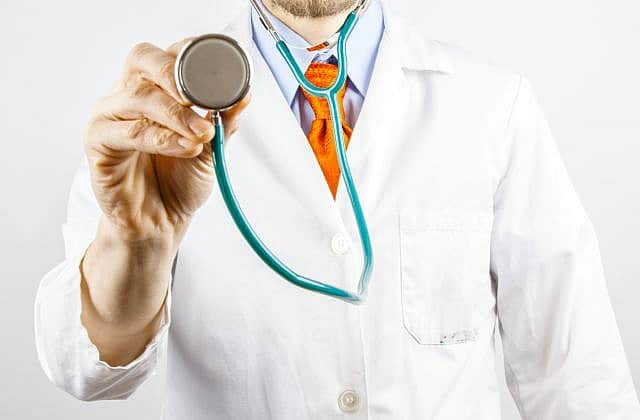
Common medical uses for computed tomography (CT) scans include the detection and treatment of cancer, brain traumas, and gastrointestinal disorders. A CT scan makes it easier for a doctor to see internal anatomy, including bones, muscles, and organs. Thanks to this, they can assess, treat, and track a wide range of medical issues. Here are some common signs that indicate the need for a CT scan.
Abdominal issues
You can see your reproductive and digestive systems clearly on a CT scan. This kind of diagnostic procedure can help your doctor see and diagnose intestinal obstruction, kidney stones, or tumors. Other dangerous disorders that may be discovered using a CT scan include infections and bowel diseases, such as Crohn’s disease and pancreatitis. This is especially important in cases when a clinician is struggling to diagnose a patient with several gastrointestinal complaints. A CT scan can also detect colon cancer. Doctors who are skilled in virtual colonoscopies often use these scans. Colonoscopies should be routine for adults (45-75 years old).
Chronic pain
Numerous factors can contribute to persistent pain, especially in the spinal region. If you’re experiencing persistent back pain, it might be because of a fracture or some underlying health problem. In this case, you should search for something like a ‘’CT scan near me’’ to get your appointment and find the root of the problem. Your doctor can better manage your persistent pain if they use a CT scan to identify its source. This way, they can clearly see the spinal cord and vertebrae. They can also better locate scoliosis, herniated disks, or fractures. Also, your surgeon can see your spine both before and after surgery using this imaging technique. It is possible to enhance the evaluation of infections or arthritis by combining a CT scan with an MRI.
Head or brain injury
Your doctor can advise a CT scan to assess, identify, and manage a brain or head injury. Many conditions can impact the head and brain, leading to symptoms like vertigo and headaches. Medical professionals can get high-resolution pictures of the brain through a CT scan. Among other issues, it can help detect malignancies, hemorrhage, blood clots, infections, and fractures. This scan may be necessary if you are experiencing headaches or dizziness that you cannot explain. You may also need it in case of a certain stroke. Brain CT scans can detect aneurysms and their causes.
Not being able to undergo an MRI
Imaging tests a patient may have depend on many factors, and not all imaging treatments are the same. Although CT and magnetic resonance imaging (MRI) scans are quite similar, some differences between them can influence the doctor’s decision to recommend one way over the other. If you have an injury that your doctor needs to examine but you can’t lie still for 30-60 minutes, a CT scan can be a better option than an MRI since it is faster and less sensitive to movement. This can also be the case if you are unable to have an MRI due to the presence of implanted medical equipment.
Blood clots or tumors
If a patient is exhibiting symptoms of tumor and blood clot, a CT scan may help physicians rule out those possibilities. This scan is often the first step in the procedure when a patient requires tumor surgery. When the surgeon has more information about the tumor’s location and size, they can carry out biopsies and other operations quickly and safely. Also, they can detect infections or abnormal amounts of fluid. Moreover, a CT scan provides valuable information on the tumor’s engagement with the surrounding tissue, which might enhance surgical results.
Difficulty breathing and sinus problems
One of the first steps in diagnosing persistent nasal congestion is to rule out sinusitis. Using a CT scan, doctors can detect abnormalities such as thickening sinus membranes and higher fluid levels. They can take the necessary measures to alleviate your persistent congestion and help you breathe better again. Also, a CT scan can help rule out sinus issues as a possible source of facial pain. Many people mistake sinusitis for toothache, but in reality, the soreness is really coming from a sinus inflammation. Pain and pressure in the cheekbones or the area around the eyes is another possible symptom. Doctors can find out whether your sinuses are the source of these problems using a CT scan.
Blood vessel problems
There are many serious vascular illnesses, like stroke, PAD, and CAD. Your doctor can see your blood arteries clearly using a CT scan. It enables them to detect issues, including obstructions, that can lead to potentially deadly outcomes. A CT scan is far safer and less invasive than surgeries or biopsies if you have problems with your blood vessels.
How is it done?
Donut-shaped computed tomography (CT) scanners are enormous devices with X-ray tubes and detectors on opposing sides. A little tunnel runs along the middle, allowing the examination table to glide in and out. Once you’re within the scanner, the X-ray machine will spin around you to capture important images of your inside organs and tissue. A CT scan takes around fifteen to thirty minutes, sometimes a bit longer, and causes no pain or intrusion. Usually, there are four phases involved:
- As the technician starts the scan, the patient lays flat on the CT bed.
- The technician inserts the bed into the scanner, and the scan begins.
- To make certain organs more visible on the scan, the patient may sometimes be given contrast intravenously.
- For the most accurate results, the patient must remain completely motionless during the scan. Sometimes a patient must hold their breath for a short period to stop the rapid up and down movement of the chest.
Patients can resume their regular activities after the CT scan. They must also drink plenty of water to flush out the contrast agent.
Your doctor will explain the process of a CT scan in further detail if they find the one is necessary. They will also discuss potential hazards and side effects. Together, you will go through the advantages of CT scans versus MRIs to find out which one is better for your condition.


















Follow Us